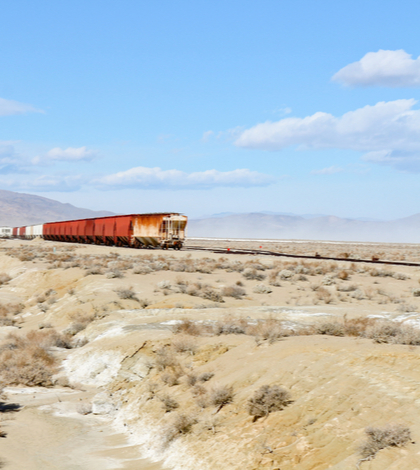Judge George H. Wu of the Los Angeles Central District Federal Court recently issued a ruling in two consolidated cases brought against the U.S. Bureau of Land Management (BLM) and the U.S. Department of the Interior (DOI) related to co-location of infrastructure in existing railroad rights-of-way, including the Cadiz Water Project’s proposed use of a local southern California railroad for water conveyance. Judge Wu’s ruling supported Interior’s legal opinion that infrastructure can be co-located within an existing railroad right-of-way without separate permitting so long as it furthers railroad purposes. However, Judge Wu remanded the BLM’s 2017 evaluation of Cadiz’s proposed use of the Arizona & California Railroad (“ARZC”) right-of-way for a water conveyance pipeline back to the BLM, concluding that the federal agency needed to explain why it withdrew and reversed specific findings previously made in 2015 on the same issue by the BLM. Wu did not find that the conclusions of the 2017 evaluation were in error, but remanded the Cadiz Water Project evaluation back to the BLM to incorporate a full explanation for the reversal into its final evaluation.
In 2015 BLM issued a similar evaluation of Cadiz’s use of the ARZC pipeline but concluded the pipeline would not further railroad purposes and therefore required its own separate right-of-way permit for its pipeline. That evaluation in 2015 was marred by controversy. The Wall Street Journal disclosed that the principal author of the 2015 BLM position was communicating with project opponents and short sellers in the Company’s public securities while the evaluation was ongoing. Several railroad, infrastructure, agriculture and labor organizations, as well as members of Congress from both sides of the aisle, called for a reversal of BLM’s 2015 position in 2016 asserting it did not comply with the agency’s own internal review standards and was contrary to federal precedent protecting adjoining federal lands from environmental impacts.
The Cadiz Valley Water Conservation, Recovery and Storage Project is a public–private partnership between Cadiz Inc. — the largest private farming enterprise in San Bernardino County — and public water providers in Southern California working to provide a reliable water supply as part of the solution to the region’s persistent water supply challenges without harm to the environment. The project aims to conserve a new 50-year water supply for approximately 400,000 people every year by capturing water that is presently lost to evaporation at the base of a vast Mojave Desert watershed.
The project underwent a review process under the California Environmental Quality Act (CEQA), acknowledged as the most stringent environmental law in the nation, that examined all potential impacts to biological, cultural, paleontological, water and natural scenarios. The CEQA review ultimately concluded that operations of the project would not cause significant adverse impacts on the environment.
Additionally, San Bernardino County (SBC) has imposed an extensive groundwater management plan that requires regular reporting and annual review for the next 50 years. SBC also imposed a “stopper” on groundwater withdrawals at 80 feet. Groundwater at Cadiz extends beyond 1000 feet below ground surface, so Cadiz’s use is significantly limited by this plan.
The recent federal cases were brought by the Center for Biological Diversity and the National Parks Conservation Association against the United States federal government. In 2017, the DOI issued a Memorandum Opinion or “M -Opinion” regarding acceptable third party uses of railroad rights-of-way. Later in 2017, the BLM issued an evaluation specific to the proposed use of the Arizona and California Railroad right-of-way by the Cadiz Water Project. The Project will provide water and power to the railroad, improving access roads and railroad transloading operations along the route. The ruling issued late last week does not call into question the conclusion of the 2017 evaluation to reverse the 2015 outcome. Judge Wu also determined that the legal standard was correct. The remand does not trigger any new permitting. The judge’s ruling was procedural in nature.
According to Cadiz CEO Scott Slater, ”The federal government argued, and Cadiz concurs, that the record fully supported the BLM’s 2017 findings “as is.” Cadiz has indicated its confidence that the BLM will swiftly prepare an amended evaluation completely compliant with the Court’s direction. The company does not expect any delays to the Cadiz Water Project implementation as a result of the ruling.”
 California Water News Daily Your Source For Water News in California
California Water News Daily Your Source For Water News in California


